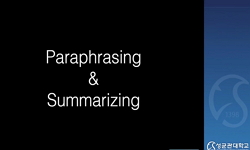웹이 정보 교환의 주된 수단으로 사용되면서, 온라인 리뷰의 중요도가 증가하는 동시에 사용자의 올바른 의사결정을 저해하는 의견 스팸 이슈가 부각되고 있으며, 관련 연구가 활발하게 진...
http://chineseinput.net/에서 pinyin(병음)방식으로 중국어를 변환할 수 있습니다.
변환된 중국어를 복사하여 사용하시면 됩니다.
- 中文 을 입력하시려면 zhongwen을 입력하시고 space를누르시면됩니다.
- 北京 을 입력하시려면 beijing을 입력하시고 space를 누르시면 됩니다.
https://www.riss.kr/link?id=A101952855
- 저자
- 발행기관
- 학술지명
- 권호사항
-
발행연도
2016
-
작성언어
Korean
-
주제어
문장재구성 ; 의견 스팸 ; 크라우드소싱 ; 리소스 생성 ; 리소스 평가 ; paraphrasing ; opinion spam ; crowdsourcing ; resources generation ; resources evaluation
-
등재정보
KCI등재
-
자료형태
학술저널
-
수록면
338-343(6쪽)
-
KCI 피인용횟수
1
- 제공처
- 소장기관
-
0
상세조회 -
0
다운로드
부가정보
국문 초록 (Abstract)
웹이 정보 교환의 주된 수단으로 사용되면서, 온라인 리뷰의 중요도가 증가하는 동시에 사용자의 올바른 의사결정을 저해하는 의견 스팸 이슈가 부각되고 있으며, 관련 연구가 활발하게 진행되고 있다. 하지만 분석 및 학습에 필요한 기준 데이터셋의 부족함과 한계점들은 관련 연구의 발전을 더디게 하고 있다. 본 논문에서는 사실 리뷰를 모사한 새로운 형태의 Paraphrased Opinion Spam(POS) 데이터셋을 소개한다. 우리는 실제 스패머들이 스팸을 작성할 때 실제 리뷰를 참고한다는 경향에 착안하여, 실제 리뷰어들이 작성한 리뷰를 의역하는 과정을 통하여 본문에 포함되어 있는 사실 정보와 경험을 담은 스팸 데이터셋을 생성하였다. 실험 결과, 새롭게 생성된 POS 데이터셋이 언어학적으로 실제 리뷰들과 유사하여 스팸분류 모델을 이용하여 분류 시 기존의 데이터셋들보다 더 분류하기 힘들다는 것을 발견했다. 또한 데이터의 학습량에 따라서 스팸 리뷰의 분류 정확도가 비례적으로 증가하는 것을 확인함으로써, 데이터의 양이 스팸 분류 모델 성능에 중요한 요소로 작용한다는 것을 확인할 수 있었다.
다국어 초록 (Multilingual Abstract)
Today, opinion reviews on the Web are often used as a means of information exchange. As the importance of opinion reviews continues to grow, the number of issues for opinion spam also increases. Even though many research studies on detecting spam revi...
Today, opinion reviews on the Web are often used as a means of information exchange. As the importance of opinion reviews continues to grow, the number of issues for opinion spam also increases. Even though many research studies on detecting spam reviews have been conducted, some limitations of gold-standard datasets hinder research. Therefore, we introduce a new dataset called “Paraphrased Opinion Spam (POS)" that contains a new type of review spam that imitates truthful reviews. We have noticed that spammers refer to existing truthful reviews to fabricate spam reviews. To create such a seemingly truthful review spam dataset, we asked task participants to paraphrase truthful reviews to create a new deceptive review. The experiment results show that classifying our POS dataset is more difficult than classifying the existing spam datasets since the reviews in our dataset more linguistically look like truthful reviews. Also, training volume has been found to be an important factor for classification model performance.
목차 (Table of Contents)
- 요약
- Abstract
- 1. 서론
- 2. 관련 연구
- 3. 스팸 리뷰 연구를 위한 데이터셋
- 요약
- Abstract
- 1. 서론
- 2. 관련 연구
- 3. 스팸 리뷰 연구를 위한 데이터셋
- 4. 실험
- 5. 결론 및 향후 연구
- References
참고문헌 (Reference)
1 A. Mukherjee, "What yelp fake review filter might be doing" 2013
2 J. Li, "Towards a general rule for identifying deceptive opinion spam" 1 : 1566-1576, 2014
3 H. Sun, "Synthetic review spamming and defense" 2013
4 A. Mukherjee, "Spotting fake reviewer groups in consumer reviews" 191-200, 2012
5 N. Jindal, "Opinion spam and analysis" 2008
6 S. Gokhman, "In search of a gold standard in studies of deception" 23-30, 2012
7 N. Jindal, "Finding unusual review patterns using unexpected rules" 1549-1552, 2010
8 M. Ott, "Finding deceptive opinion spam by any stretch of the imagination" 1 : 309-319, 2011
9 S. Rendle, "Factorization machines with libFM" 3 : 57-80, 2012
10 A. Heydari, "Detection of review spam : A survey" 3634-3642, 2015
1 A. Mukherjee, "What yelp fake review filter might be doing" 2013
2 J. Li, "Towards a general rule for identifying deceptive opinion spam" 1 : 1566-1576, 2014
3 H. Sun, "Synthetic review spamming and defense" 2013
4 A. Mukherjee, "Spotting fake reviewer groups in consumer reviews" 191-200, 2012
5 N. Jindal, "Opinion spam and analysis" 2008
6 S. Gokhman, "In search of a gold standard in studies of deception" 23-30, 2012
7 N. Jindal, "Finding unusual review patterns using unexpected rules" 1549-1552, 2010
8 M. Ott, "Finding deceptive opinion spam by any stretch of the imagination" 1 : 309-319, 2011
9 S. Rendle, "Factorization machines with libFM" 3 : 57-80, 2012
10 A. Heydari, "Detection of review spam : A survey" 3634-3642, 2015
11 E-P. Lim, "Detecting product review spammers using rating behaviors" 2010
12 S. Kim, "Deep semantic frame-based deceptive opinion spam analysis" 1140-1141, 2015
동일학술지(권/호) 다른 논문
-
OpenCL을 이용한 임베디드 GPGPU환경에서의 AES 암호화 성능 개선과 평가
- 한국정보과학회
- 이민학(Minhak Lee)
- 2016
- KCI등재
-
끊김 없는 DASH 기반 라이브 스트리밍 서비스를 제공하기 위한 세그먼트 스케줄링 기법
- 한국정보과학회
- 윤두열(Dooyeol Yun)
- 2016
- KCI등재
-
워드 임베딩과 품사 태깅을 이용한 클래스 언어모델 연구
- 한국정보과학회
- 정의석(Euisok Chung)
- 2016
- KCI등재
-
사용 상황에 맞게 분류된 사물의 데이터 시각화와 제어를 위한 인터페이스 개발
- 한국정보과학회
- 박희성(Heesung Park)
- 2016
- KCI등재
분석정보
인용정보 인용지수 설명보기
학술지 이력
| 연월일 | 이력구분 | 이력상세 | 등재구분 |
|---|---|---|---|
| 2022 | 평가예정 | 재인증평가 신청대상 (재인증) | |
| 2019-01-01 | 평가 | 등재학술지 유지 (계속평가) |  |
| 2016-01-01 | 평가 | 등재학술지 유지 (계속평가) |  |
| 2015-01-01 | 평가 | 등재학술지 유지 (등재유지) |  |
| 2014-09-16 | 학술지명변경 | 한글명 : 정보과학회논문지 : 컴퓨팅의 실제 및 레터 -> 정보과학회 컴퓨팅의 실제 논문지외국어명 : Journal of KIISE : Computing Practices and Letters -> KIISE Transactions on Computing Practices |  |
| 2013-04-26 | 학술지명변경 | 외국어명 : Journal of KISS : Computing Practices and Letters -> Journal of KIISE : Computing Practices and Letters |  |
| 2011-01-01 | 평가 | 등재학술지 유지 (등재유지) |  |
| 2009-01-01 | 평가 | 등재학술지 유지 (등재유지) |  |
| 2008-10-02 | 학술지명변경 | 한글명 : 정보과학회논문지 : 컴퓨팅의 실제 -> 정보과학회논문지 : 컴퓨팅의 실제 및 레터외국어명 : Journal of KISS : Computing Practices -> Journal of KISS : Computing Practices and Letters |  |
| 2007-01-01 | 평가 | 등재학술지 유지 (등재유지) |  |
| 2005-01-01 | 평가 | 등재학술지 유지 (등재유지) |  |
| 2002-01-01 | 평가 | 등재학술지 선정 (등재후보2차) |  |
학술지 인용정보
| 기준연도 | WOS-KCI 통합IF(2년) | KCIF(2년) | KCIF(3년) |
|---|---|---|---|
| 2016 | 0.29 | 0.29 | 0.27 |
| KCIF(4년) | KCIF(5년) | 중심성지수(3년) | 즉시성지수 |
| 0.24 | 0.21 | 0.503 | 0.04 |




 DBpia
DBpia




